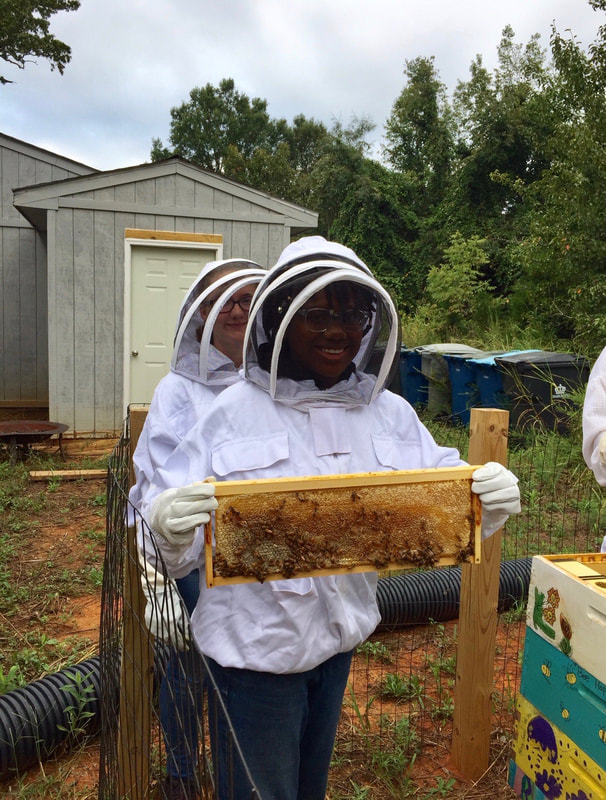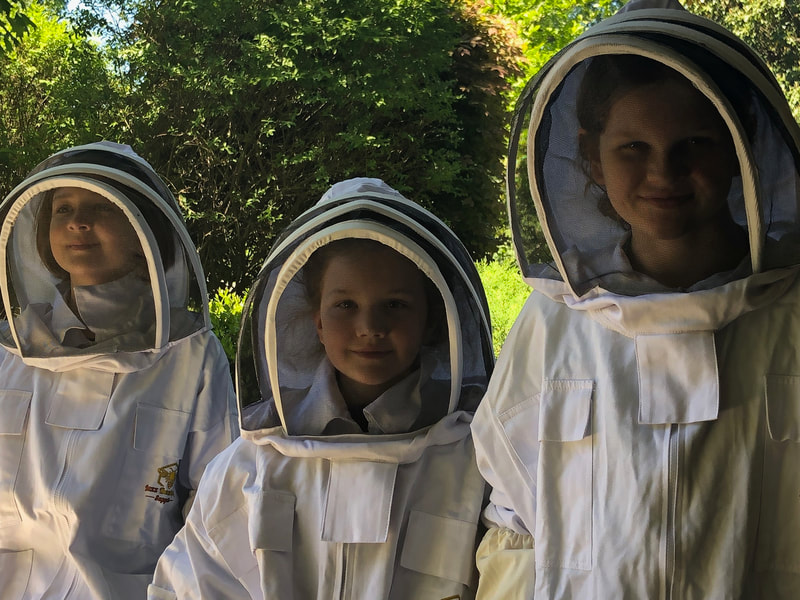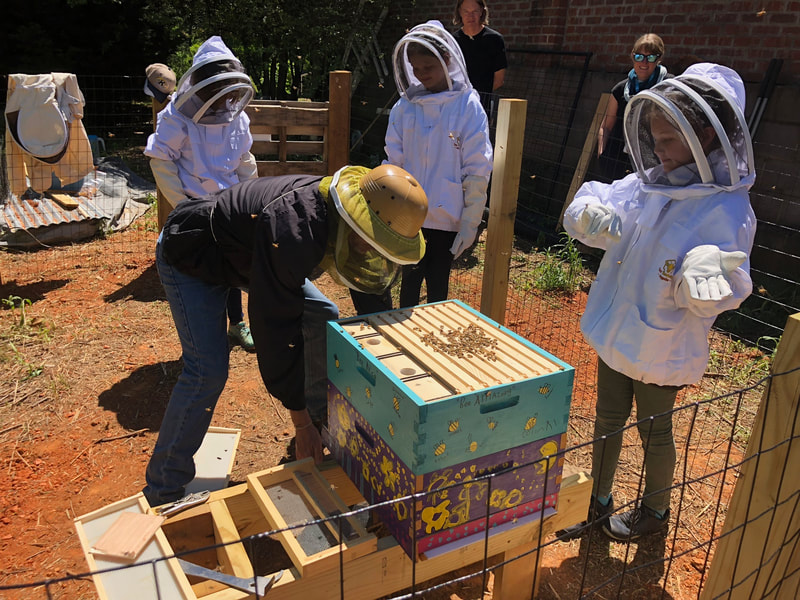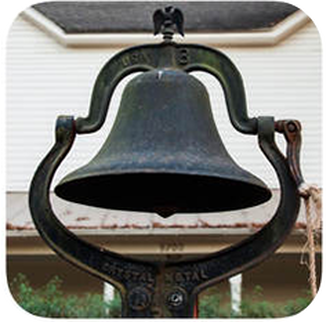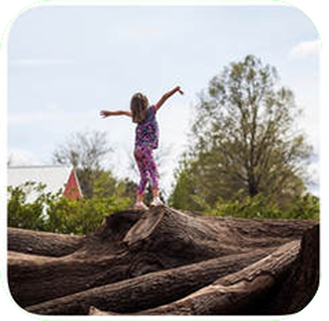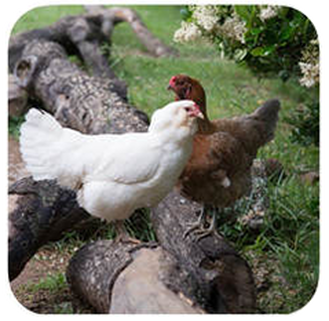BeesIn 2018 PSCS celebrated "The Year of the Honey Bee". The year long celebration kicked off during Earth Week with students studying honey bees and beginning to build Langstroth hive boxes. Fifth grade students researched and created books about honeybees that were shared with younger students and their families. A local beekeeper presented information sessions to several grade levels about the importance of honey bees. The Nature Education Coordinator completed the Mecklenburg County Bee School and earned a North Carolina Beekeeper Certification. Weekly, students participate in pollinator related educational missions during a program called Packs, a multiple grade level weekly class where small groups of students work with a staff facilitator to explore environmental sciences, build community, and solve real world challenges. Multiple bee workshops have been scheduled for our community about pollinators to increase knowledge, relieve any fears, and create excitement about honey bees.
Students have designed two pollinator gardens, a raised vegetable/flower bed for each class, a native plant garden, and a small fruit orchard. The school campus is an officially recognized certified wildlife habitat. Each garden and natural space is integrated into the schools curriculum allowing students to gain real world hands on experiences. Second grade students worked to have the school designated a stop on the "Butterfly Highway". Click here for a video of our students building the apiary. Bee education and Hives on campus. Pioneer Springs Community School students are involved in all aspects of beekeeping from beginning to end. With the guidance of the Nature Education Coordinator and the Mecklenburg County Beekeepers Association, students prepared a proper apiary location, build a bee hive, learn beekeeping techniques, and eventually harvest honey. As students move into High School, the ultimate goal is to integrate beekeeping into a sustainable agriculture program. Having an apiary on campus enables participating students to become North Carolina Certified Beekeepers prior to graduating high school. The Pioneer Springs Community School apiary is utilized by K- 8 students as an integrated component across the school's curriculum. The hive helps teachers provide experiential learning opportunities meeting North Carolina Standard Course of Study goals. Student interaction with the hive is differentiated based on developmentally appropriate activities. The hive provides younger students the opportunity to be hands on with science standards such a animal and plant life cycles, the food web, and eco-interdependence. Upper elementary students have the opportunity to work with the bees learning the importance of pollinators in the environment and food production. Students are community advocates for honey bees helping to educate community members about pollinators, gardening, food security, and the impact of pesticides. The students learn beekeeping from certified beekeepers through weekly hive inspections. Middle School students are active participants in all hive related activities including mite counts, feeding, preparing for the honey flow, collecting honey, and ensuring the bees are ready for winter. Through mentoring, school families are encouraged to participate in the North Carolina Beekeeper Certification Program increasing the number of hives and bee friendly spaces in the surrounding community. As the beekeeping program grows, Pioneer Springs Community School students will utilize excess honey to teach marketing and economic skills through sales at festivals, farmers markets, and a partnering community store. The educational opportunities for children interacting with the hive are only limited by the imagination of our faculty. With enthusiastic support of the Pioneer Springs Community School Board, administration, teachers, and families, we are excited to see the amazing interactions students have with the bees. More Bee Resources- Ways you can help in your own back yard https://thehoneybeeconservancy.org/how-to-save-the-bees/ https://www.ncagr.gov/SPCAP/bee/ https://blog.nwf.org/2018/04/six-ways-to-help-bees-and-beesponsible/ https://news.nationalgeographic.com/2015/05/150524-bees-pollinators-animals-science-gardens-plants/ https://www.beepods.com/want-to-save-bees-but-allergic-10-things-you-can-do-to-help-honey-bees-and-other-pollinators/ |
UPCOMING EVENTSCheck the Events Calendar for more information.
|
QUICK LINKS |
NEWS |
|
Sponsors |
Copyright © 2018 Pioneer Springs Community School Inc. All rights reserved.

